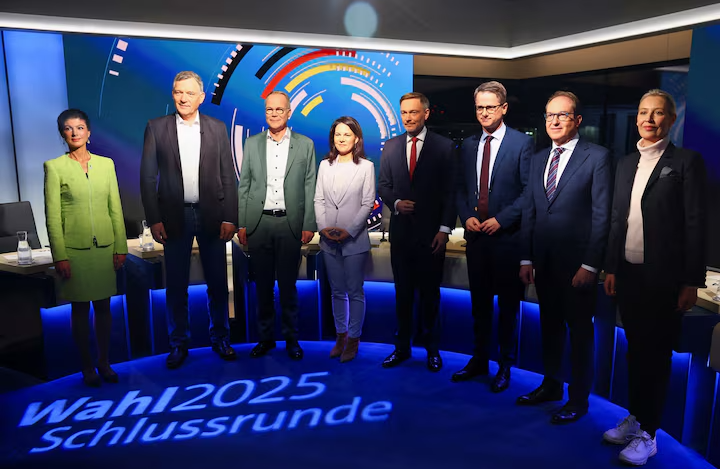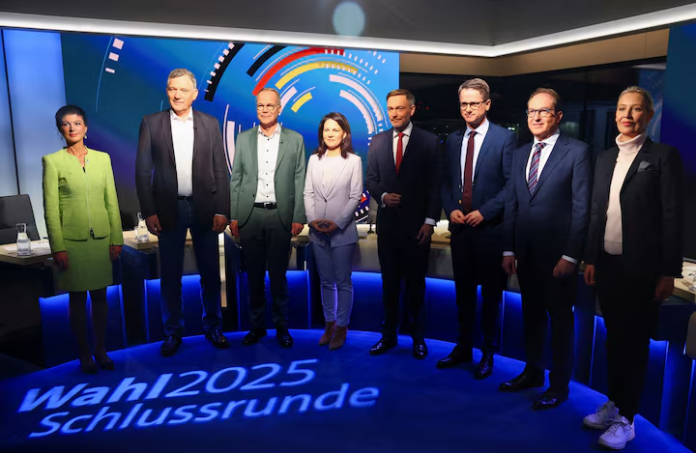As Germany approaches its national election on February 23, 2025, the political scene is witnessing significant shifts. Recent polls indicate a decline in support for traditional parties, while the far-right Alternative für Deutschland (AfD) is gaining momentum. This development suggests that forming a stable government coalition could become a complex and prolonged process.
The election occurs at a critical juncture, with Europe facing challenges such as a confrontational U.S. administration under President Donald Trump, whose policies raise questions about the future of Western alliances.
Friedrich Merz, leader of the conservative Christian Democratic Union (CDU) and its sister party, the Christian Social Union (CSU), has expressed concerns about the evolving geopolitical landscape.
In a recent letter to supporters, Merz emphasized Germany’s commitment to its Western alliances, stating, “Even without Americans, our place remains in the center of Europe, not alongside Putin and not isolated on the way to the right-wing populist sidelines.” He underscored the necessity for Germany to assume leadership responsibilities to ensure Europe’s continued success.
According to a Forsa poll, the CDU/CSU’s support has decreased by one percentage point, now standing at 29%. In contrast, the AfD has seen a rise of one point, reaching 21%. The Social Democratic Party (SPD), led by Chancellor Olaf Scholz, has also experienced a decline, now at 15%.
The Green Party and the pro-market Free Democratic Party (FDP) remain steady at 13% and 5%, respectively. The far-left Left party has inched up to 8%. These figures suggest that forming a government will be challenging, as traditional two-party coalitions may not secure a majority.
Merz may need to consider a three-way coalition, potentially involving the SPD and the Greens or the SPD and the FDP, making negotiations more intricate. This scenario could lead to extended coalition talks, during which Chancellor Scholz would continue in a caretaker capacity, limiting his ability to make significant policy decisions.
The potential for a fragmented coalition raises concerns about governmental stability. The previous three-way alliance led by Scholz collapsed in November 2024 after just three years, highlighting the difficulties of managing such coalitions.
The rise of the AfD and the diminishing dominance of traditional parties suggest that multi-party coalitions may become more common, potentially leading to policy compromises and internal disagreements.

Despite the competitive atmosphere, recent campaign events have shown moments of camaraderie among leaders. In a televised debate, when asked if he would join Chancellor Scholz in a rowing boat, Merz responded affirmatively. Similarly, Scholz indicated he would fly with hobby pilot Merz, acknowledging his qualifications.
These exchanges, however, contrast with underlying tensions, particularly regarding migration policies. Merz’s recent attempt to implement stricter migration controls with AfD support has sparked controversy.
This move contradicts his earlier commitment to avoid relying on AfD lawmakers, leading to trust issues among other parties.
As Germany stands on the brink of this pivotal election, the political landscape is marked by uncertainty and potential realignment. The surge of the AfD and the erosion of traditional party support complicate the path to a stable government. The forthcoming coalition negotiations will be crucial in determining Germany’s political direction and its role within the broader European context.



